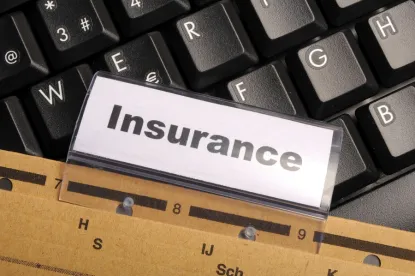The death of George Floyd is a national tragedy that should never have happened. The winds of change are in the air and we can only hope that peace, understanding, justice and fairness for all will prevail. What happened to George Floyd and the cries to end racial injustice, however, have been overshadowed in the eyes of many by the vandalism, looting and rioting that followed. That brings us to insurance.
There have been many articles discussing whether and how the business losses arising from the vandalism and looting will be covered under insurance policies. Because these losses took place during the novel coronavirus pandemic, the insurance coverage issues have become more complex. This is particularly true for business interruption claims.
There are three issues that I thought were worth highlighting. The first concerns the confluence of the existing COVID-19 stay-home orders and the vandalism and looting. The second is the necessary nexus between direct physical damage and civil orders under coverage for civil authority. Finally, the effect of anti-concurrent cause clauses in property policies.
First, some of the business interruption claims now being brought by businesses that had to shut down because of the protests or because of the curfew orders have been complicated by overlapping civil authority stay-home orders because of the novel coronavirus. Where a business was closed because of COVID-19 stay-home orders or was open only to provide curbside pickup or delivery services, how is its loss of income and extra expense calculated if the business had to close because of the civil unrest? Analyzing this issue requires much more space than this blog post can provide. It is a complicated issue that depends on exactly what coverage is provided and how loss of income is calculated under the relevant business interruption coverage grant.
Just as an example, under a common business income and extra expense coverage form, the amount of business income loss is determined based upon the net income of the business “before the direct physical loss or damage occurred,” the likely net income of the business “if no physical loss or damage has occurred . . . ” and “the operating expenses, including payroll expenses, necessary to resume operations with the same quality of service that existed just before the direct physical loss or damage.” When applied to the recent vandalism and looting business interruption losses, the net income before the vandalism and looting may have been much less than in months or years past because of the COVID-19 stay-home orders. If no vandalism and looting had occurred, the likely net income would have been the same as under the existing COVID-19 stay-home orders; that is to say, most likely diminished from prior periods. Yet some are pushing for the COVID-19 effect not to be considered at all in the calculation of net income in the context of business interruption losses due to vandalism and looting.
Second, civil orders that prevented ingress and egress to and from businesses because of the threat of violence from possible protests likely will not be sufficient to trigger coverage under business interruption civil order provisions. The common form requires a nexus between direct physical damage and the civil order. For example, the action of civil authority must be “taken in response to dangerous physical conditions resulting from the damage or continuation of the Covered Cause of Loss that caused the damage. . . .” If a local government shuts down a business district in advance of a protest and before there is any physical damage to property, that civil order should not trigger coverage under the business interruption coverage grant. A civil order that shuts down a business district after vandalism because the area is dangerous likely would result in some coverage under the business interruption coverage grant depending on other policy factors.
Finally, some property policies limit coverage to covered causes of loss and preclude coverage if the loss was caused in part by a non-covered cause of loss. For example,
We will not pay for loss or damage caused directly by any of the following. Such loss or damage is excluded regardless of any other cause of event that contributes concurrently or in any sequence to the loss. These exclusions apply whether or not the loss event results in widespread damage or affects a substantial area.
If an insurance policy excludes a cause like looting, but covers vandalism, even if the loss was caused in part by looting, the anti-concurrent causation clause would preclude coverage. So too, if part of the loss claimed was caused by the novel coronavirus and the policy has a virus exclusion, that would preclude the loss even if part of it was caused by vandalism.
As always, it is most important to read the complete policy because not all insurance policies are the same. Nevertheless, there is no doubt that business interruption losses arising from the recent civil unrest have been complicated by existing governmental orders covering the novel coronavirus. It will take patience by all parties and careful analysis to work through these claims.




 />i
/>i
